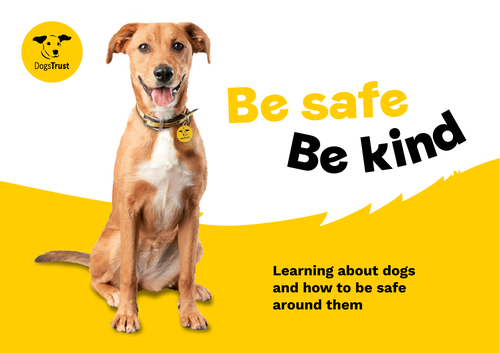Dogs Trust's Shop
Our dog-themed, curriculum-linked classroom resources provide fun activities to engage your pupils and bring learning to life. We provide resources that can be used with pupils aged 4-16+. The Dogs Trust Community Engagement and Education Team also deliver free primary school workshops and assemblies across the UK. Our Be Dog Smart school-based programme focusses on teaching children how to behave safely around dogs so that the human-canine bond can be enjoyed to the fullest.







